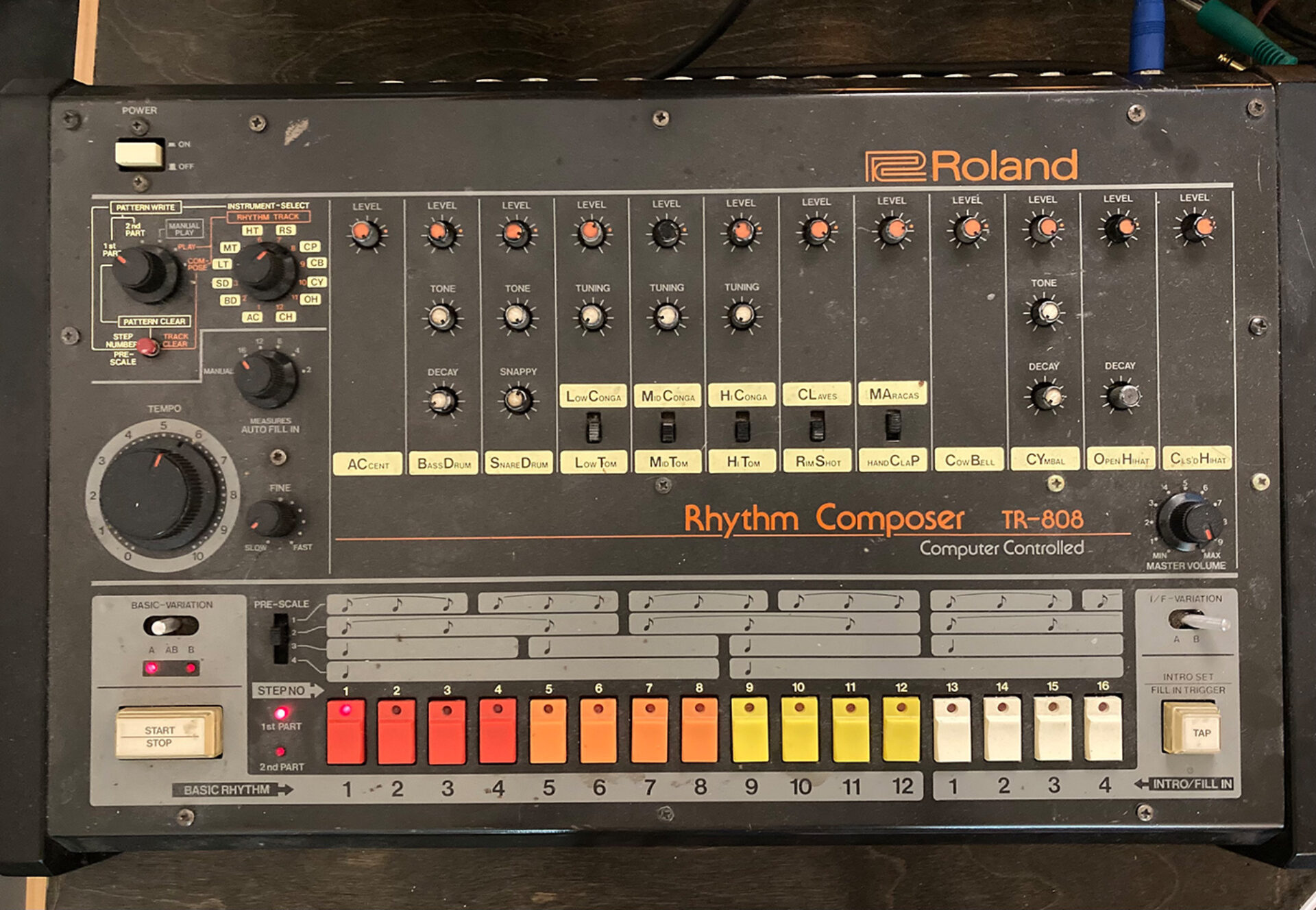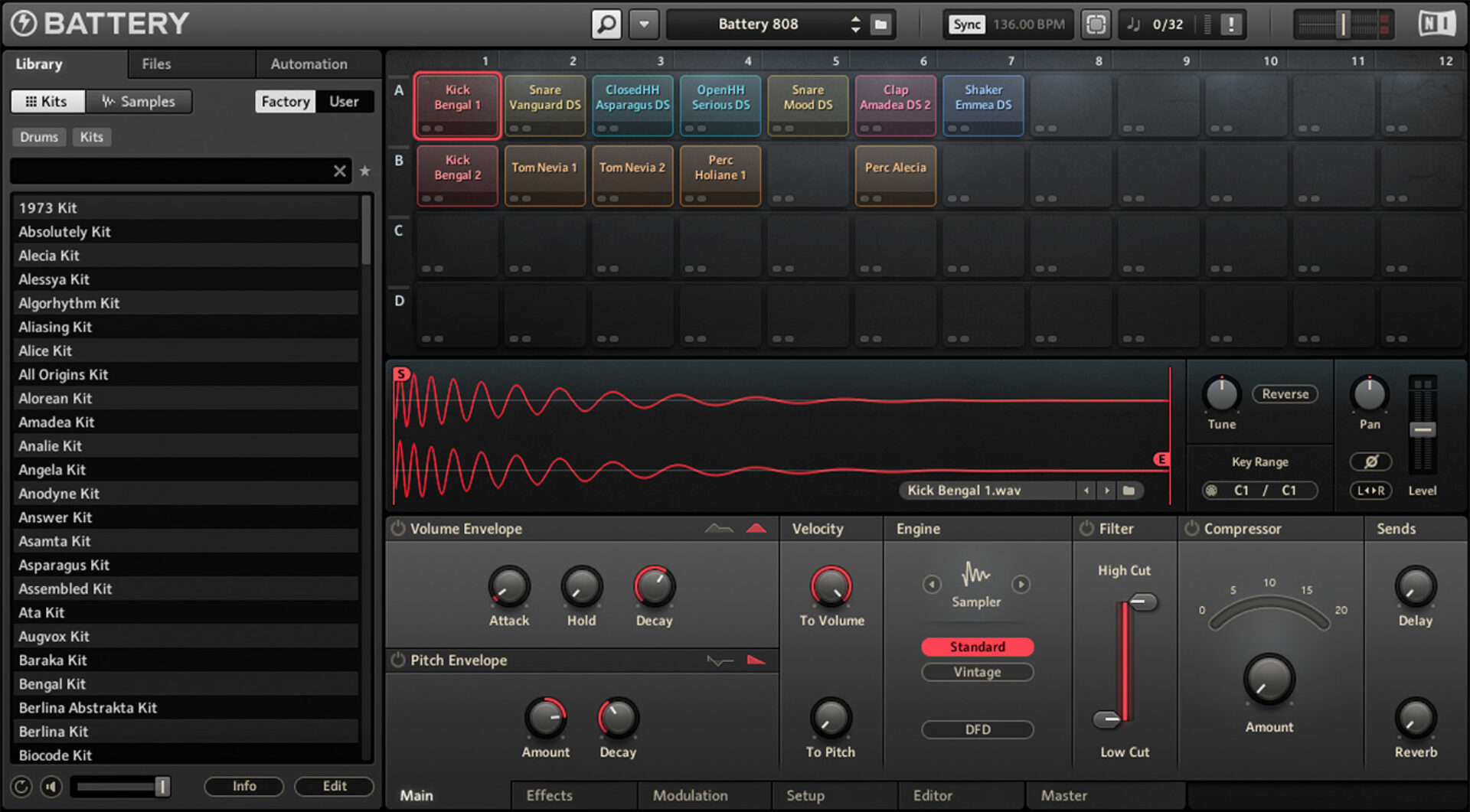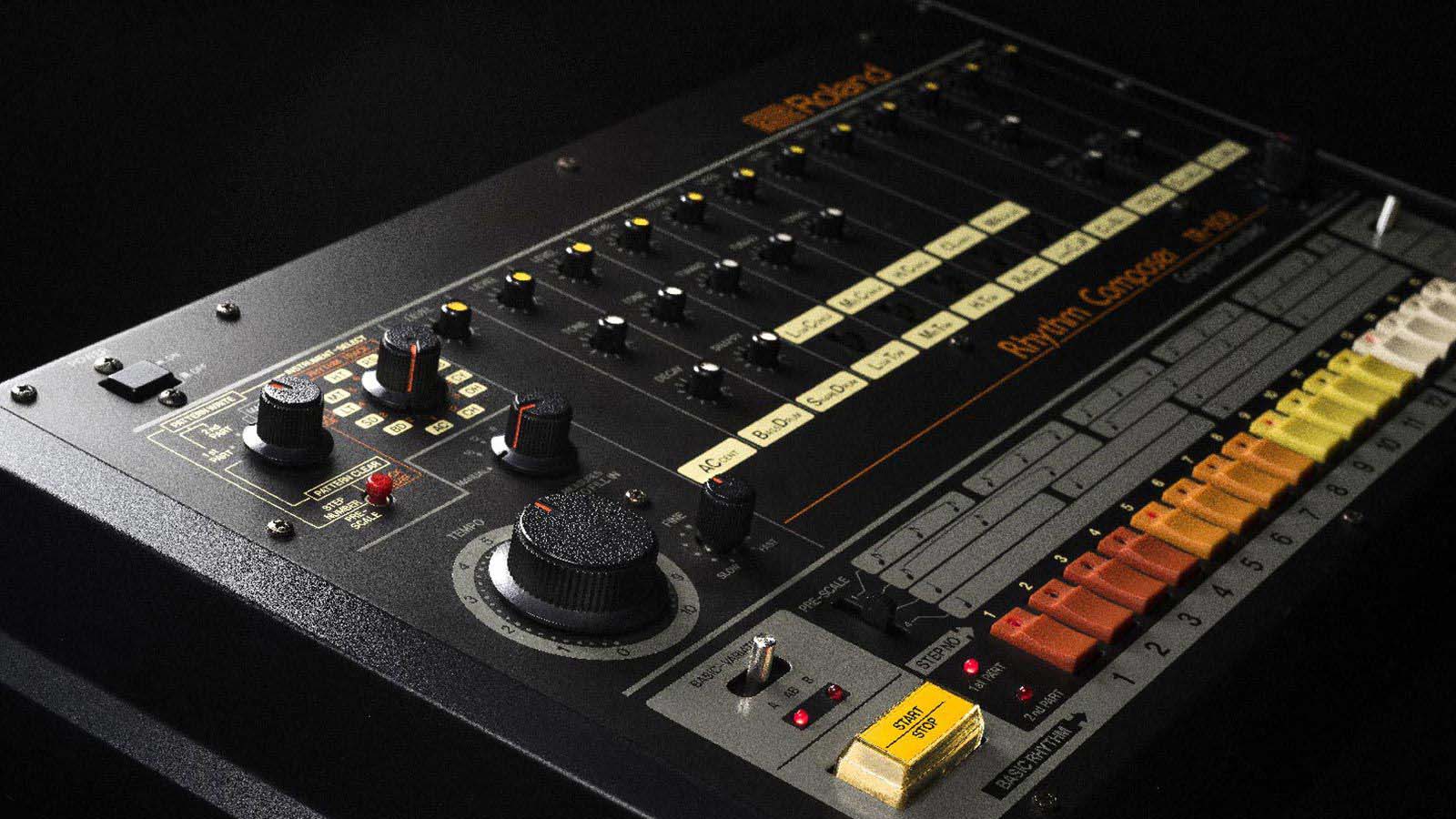What Are 808s - A Deep Look At The Iconic Sound
Have you ever listened to a piece of music, maybe something with a really strong, deep beat, and felt that powerful thump in your chest? That feeling, that particular kind of low-end punch, often comes from a sound known as the "808." It's a sound that has, you know, shaped so much of the music we hear today, from hip-hop to pop, and even some rock music. It is that distinctive bass drum sound, often extended and rumbling, that gives many tracks their driving force and a certain kind of mood.
This unique sound, which is really quite a big deal in music making, got its start many years ago with a particular piece of equipment. It was a machine that made drum sounds, and it wasn't even meant to be a star performer at first. In fact, it was almost, you know, a bit of an accidental hero in the music world. People found ways to use it that its creators probably never even thought about, giving it a life of its own.
So, if you've ever wondered about that big, booming bass sound that seems to show up everywhere, or if you're just curious about how music gets its groove, then getting to know what an 808 is all about might be just the thing. It’s more than just a sound; it’s a whole piece of music history that keeps on making new sounds and, you know, influencing artists all the time. We'll talk about where it came from and why it still matters so much.
Table of Contents
- What is the 808 Sound?
- The Unique Character of the 808
- How 808s Shaped Music
- Getting Your Own 808 Sound
What is the 808 Sound?
When people talk about the "808," they are usually talking about a very specific kind of bass drum sound. It’s a low, deep thud that often has a bit of a tail, meaning the sound keeps going for a moment after the initial hit. This lingering quality is part of what makes it so distinct. It’s not just a quick "boom"; it’s more like a "booooooom," with that low rumble carrying on, you know, for a bit. This sound is very different from the quick, punchy bass drums you might hear in rock music or older pop tunes. It’s got a different kind of feel to it, a bit more stretched out and, well, resonant.
This particular sound comes from an older piece of electronic equipment. It’s a machine that makes drum sounds, and it was made by a company many years ago. The sound itself is purely electronic; it’s not a recording of a real drum. Instead, it’s made by circuits and electricity, which gives it a very clean, yet powerful, feel. It’s a sound that you can almost feel in your bones, especially when played through big speakers. It really gets things moving, you know, in a track.
The sound of the 808 is, in some respects, quite versatile. While it’s known for that deep bass drum, the original machine could also make other sounds, like snares, claps, and hi-hats. But it’s that bass drum that really stuck with people and became famous. It’s the one sound that producers and artists kept coming back to, time and time again, to give their music that special something. It’s pretty much a staple in many music styles, and that's just how it is.
How Did the 808 Come to Be?
The origin of the 808 sound goes back to a piece of musical gear called the Roland TR-808 Rhythm Composer. This machine first came out in the early 1980s, and it was actually meant to be a tool for musicians to create demo tracks, kind of like a backing band that never complained. It wasn’t supposed to sound like real drums, and that was, you know, part of its charm, or maybe its flaw, depending on how you looked at it back then. People who were looking for very realistic drum sounds often passed it over because it sounded so clearly electronic. It was a bit of a different beast.
Interestingly, the TR-808 didn't sell all that well at first. Many musicians at the time wanted drum machines that sounded more like actual acoustic drums, and the 808, with its very synthetic sounds, didn't quite fit that idea. So, it ended up being, you know, available for a lower price after a while. This lower price point turned out to be a big deal for a lot of budding music makers who couldn't afford more expensive, realistic-sounding drum machines. It was a bit of a happy accident, really.
It was in the hands of these creative and resourceful music makers, especially those working in early hip-hop and electronic music, that the 808 truly found its calling. They didn't see its electronic sound as a weakness; they saw it as a strength. They embraced its unique character and used it to create sounds that no one had ever heard before. This is where the story of the 808 really takes off, you know, where it started to become a legend. It was a different path than its creators might have planned, but it worked out rather well.
The Unique Character of the 808
What sets the 808 apart from other drum sounds is its distinct sound profile. It’s not just about being low; it’s about how that low sound behaves. The bass drum sound from the 808 has a very quick attack, meaning it hits hard and fast at the beginning, but then it has a long, decaying tail. This tail can be adjusted, so it can be a short thud or a long, drawn-out rumble that almost sounds like a bass note itself. This ability to stretch out the bass sound makes it very versatile, you know, for different musical ideas.
Another thing that makes the 808 special is its pure, clean tone. Because it’s an electronically generated sound, it doesn’t have the natural imperfections or variations that a real drum might have. This gives it a very consistent and, in some ways, almost perfect sound. It’s a sound that cuts through a mix and really stands out, providing a solid foundation for other musical elements. It’s a sound that, you know, just holds things together.
The sound of the 808 also has a certain kind of warmth to it, even though it's electronic. It’s not harsh or cold; it has a fullness that fills out the lower frequencies of a song. This warmth, combined with its strong punch, gives it a very appealing quality that artists and listeners alike seem to connect with. It’s a sound that feels good, you know, a sound that makes you want to move. It’s a bit like a comforting presence in the background of a track, really.
What Makes the 808 Special?
The special qualities of the 808 come from how it was built. Unlike some other drum machines that used samples, which are recordings of real sounds, the 808 made its sounds using analog synthesis. This means the sounds were created from scratch using electronic circuits. This method gives the 808 its characteristic "boomy" bass drum and its sharp, snappy snare and clap sounds. It’s a very particular way of making sound, and it gives the 808 its unique sonic fingerprint. That, is that, it's just how it was made.
The ability to adjust the decay of the bass drum is a big part of what makes the 808 so special. You can make the bass drum sound very short and punchy, or you can make it ring out for a long time, almost like a sustained bass note. This flexibility allows music makers to use the 808 in many different ways, from providing a simple beat to creating a deep, melodic bassline. It’s like having a drum and a bass instrument all rolled into one, you know, in a way. This feature alone opened up many new possibilities for music.
Another thing that makes the 808 special is its cultural impact. It wasn't just a piece of gear; it became a symbol. It was adopted by genres of music that were, you know, pushing boundaries and creating new sounds. Because it was affordable and had such a distinctive sound, it became a go-to for artists who wanted to experiment and make something fresh. It’s a sound that, for many, represents a whole era of music and continues to inspire new generations. It really is a bit of a legend.
How 808s Shaped Music
The influence of the 808 on music is hard to overstate. It pretty much changed the sound of many popular music styles. When it first gained traction, especially in the early 1980s, it became a core sound for hip-hop. Before the 808, hip-hop beats often relied on samples from existing records. The 808 offered a way to create original, powerful drum patterns without needing to find and clear samples. This gave artists more freedom to create their own unique grooves, you know, from the ground up.
Beyond hip-hop, the 808 found a home in various electronic music genres. Think about early techno, house, and even some forms of pop music. The deep, consistent bass and crisp percussion sounds of the 808 were perfect for creating the repetitive, hypnotic rhythms that these styles often used. It provided a solid rhythmic backbone that allowed other elements of the music, like synthesizers and vocals, to shine. It really helped to define the sound of these emerging styles, you know, making them what they are.
Even today, decades after its initial release, the 808 sound is still everywhere. It’s been used by countless artists across different genres, from chart-topping pop stars to underground electronic producers. Its timeless appeal comes from its versatility and its ability to add a certain weight and feeling to a track. It’s a sound that listeners instantly recognize, even if they don't know its name, and it continues to be a staple in modern music production. It's almost like a secret ingredient, really.
Where Can You Hear What an 808 Is Doing?
You can hear the distinct sound of an 808 in so many different songs, it’s almost unbelievable. If you listen to a lot of hip-hop from the 1980s and 1990s, you’ll find it all over the place. Think about tracks from artists like Marvin Gaye, Afrika Bambaataa, or even some early Beastie Boys. That deep, sustained bass drum that drives the rhythm is often the 808 at work. It’s a very foundational sound for that era, you know, a sound that helped define it.
As time went on, the 808 sound spread even further. In the 2000s and beyond, it became a core element in trap music, a subgenre of hip-hop. Here, the 808 bass drum is often heavily distorted and tuned to specific musical notes, creating a very melodic and powerful bassline. This is where you hear the 808 really singing, in a way, taking on a more prominent role than just a simple drum sound. It’s a bit like a new instrument, really, in how it's used.
Pop music also picked up on the 808’s appeal. Many popular songs, especially those with a strong rhythmic drive or a need for a deep, emotional bass sound, use the 808. Its ability to create a sense of weight and emotion makes it perfect for songs that aim to connect with listeners on a deeper level. It’s a sound that just feels right for so many different kinds of music, and it’s pretty much everywhere once you start listening for it. You know, it's just that versatile.
Getting Your Own 808 Sound
If you're interested in making music and want to use the 808 sound, you have several options available today. The original Roland TR-808 machines are quite rare and very expensive now, like collector's items. But, you don't need to get your hands on an original to use the sound. Many companies have created updated versions of the 808, either as physical machines or as software that runs on a computer. These newer versions often sound very close to the original, and some even offer more flexibility. So, you know, it's much easier to get that sound now.
One common way to get the 808 sound is through software plugins. These are programs that you can use within your music production software, and they simulate the original 808 machine. They allow you to create and adjust the 808 sounds right on your computer, giving you a lot of control over how they sound in your tracks. This is a very popular method for music makers today, as it's convenient and, you know, quite powerful. It really makes things simple for people.
Another option is to use samples of 808 sounds. Many sound packs and sample libraries include recordings of the original 808 sounds, which you can then drag and drop into your music projects. While this doesn't give you the same level of control over the sound generation as a software plugin or the original machine, it’s a quick and easy way to get that classic 808 punch into your tracks. It’s a bit like using pre-made building blocks, really, to put your music together. You can get that feel pretty quickly.

What are 808 beats? How to create their iconic sound in your music

What are 808 beats? How to create their iconic sound in your music

What are 808s? Meaning, history and production tips